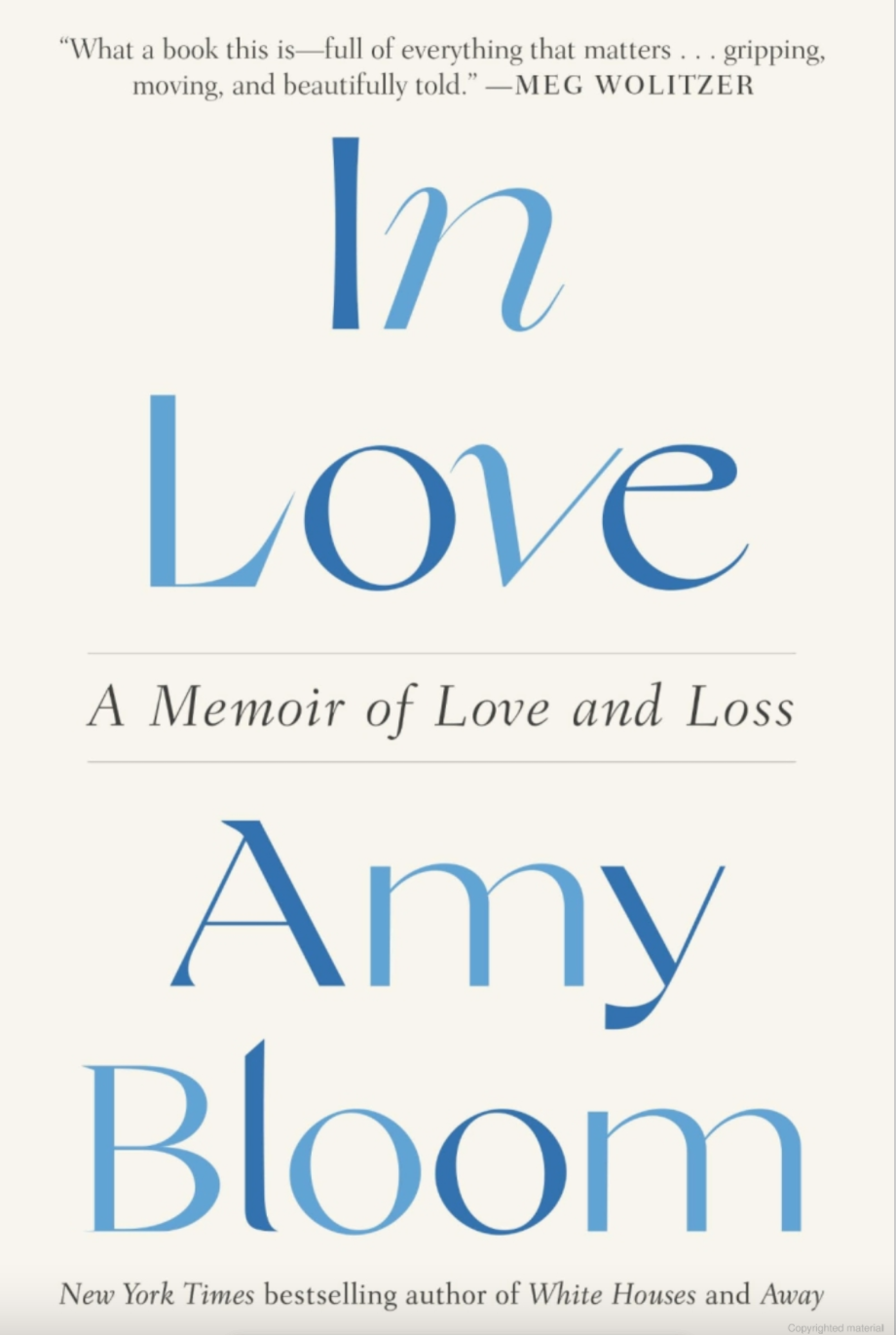The Transformative Power of Being in Love
“In Love: A Memoir of Love and Loss”
By Amy Bloom
$27.00
Random House
240 pages
by Fran Withrow 06.2022
“The Year of Magical Thinking” by Joan Didion is one of the most powerful books I’ve ever read. Didion’s account of her life after the sudden death of her husband is extraordinary.
I immediately thought of Didion as I read Amy Bloom’s book, “In Love.” Bloom’s memoir also centers around the death of her husband. Brian Ameche was diagnosed with Alzheimer’s and decided to die by assisted suicide at the age of 66. Before he died, he told Bloom to “write about this.”
Fortunately, she did.
Bloom first noticed subtle differences in Ameche in 2016, but it was much later before they did any testing. Bloom includes an actual “Mini-Mental State Examination” sample sheet in her book so you can see what types of questions are used to make an mental assessment. At the time of testing, Ameche’s results already showed mild dementia.
Wanting to end your life by medical suicide is anything but easy. Even in the few states that have Right to Die laws, there is only a narrow opening to qualify for assisted suicide. The person has to be a resident of that state and needs to have less than six months left to live. They need to be mentally capable of expressing their wish to die and be able to swallow the medication unassisted. As you can imagine, few end-stage Alzheimer’s patients are capable of this.
Bloom eventually hears about Dignitas, an accompanied suicide organization in Switzerland. She and her husband fly to Europe, and Bloom describes every detail of the process, from their initial contact to the moment Ameche takes his final medication.
The end is very peaceful for Bloom’s husband.
Moving back and forth between their last days in Zurich and their life beforehand, Bloom deftly paints a loving but honest portrait of her marriage. This exquisite memoir is not only a tribute to Ameche, but also a way of raising awareness about patient rights at the end of life. Shouldn’t people with terminal illness,“painful diminishment, or just plain exhaustion at one hundred four” be able to choose their exit strategy?
Any book about death involves poignancy and grief, but Bloom’s chronicle also has plenty of honesty about the challenges of marriage, as well as a healthy dose of dark humor. When Ameche suggests that Bloom herself give him a lethal dose of something, she refuses, as that would be murder and she could go to jail. “You’d do great in jail,” he says. “You’re so resourceful; you’re a leader.”
Like Didion, Bloom writes movingly about the transformative power of being “in love,” the heartbreak of letting go, and finding one’s way forward after the death of a partner. Both Bloom and Didion have experienced and written about those thin places that separate life from death. They write about searching for meaning and strength even in the face of unimaginable loss. And though their experiences were vastly different, both women write fearlessly and wondrously about a topic many people shy away from.
I salute their courage with gratitude.

